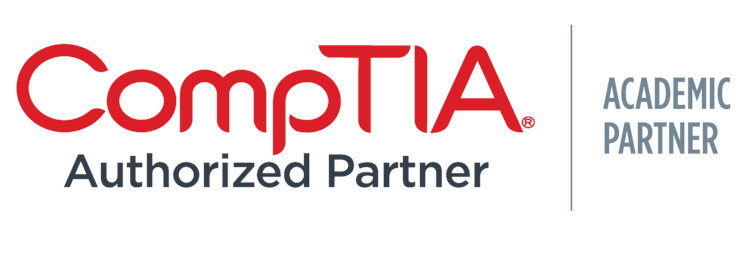Bachelor of Science in Cybersecurity

Learn with a National Security Agency (NSA) Center of Academic Excellence in Cyber Defense
Gain Hands-On Experience
Earn Digital Badges
Up-to-Date Curriculum
Learn More Today
Complete the form to learn more about this program.
- Duration 4 years
- Cost per Credit $475
- Credit Hours 120
Program Benefits
- Endorsed by the National Security Agency and Department of Homeland Security in Cyber Defense
- Earn micro-credentials from RangeForce
- CompTIA industry certifications built into curriculum
- Three forward-thinking specializations
- Women in Cybersecurity Student Chapter

The demand for cybersecurity experts is growing at an unprecedented rate. Utica University can give you what you need to secure a career in an ever expanding industry. The defense and protection of both businesses and nations from cyber-based crimes has become more than just a technological niche– it has become a human need.
A leader in cyber education, Utica is one of only 15 universities appointed as a National Center of Digital Forensics Academic Excellence. The newly redesigned Bachelor in cybersecurity combines both real world knowledge and expert instructors to prepare you for the most in-demand private sector positions. With hands on learning and digital badging through RangeForce and CompTIA certifications baked into the curriculum, Utica University boasts some of the most widely required certifications in cybersecurity.
You’ll receive the knowledge and training needed to put you above the rest with the qualifications to prove it. Learn from real scenarios in a hands-on setting in a course track that carries you all the way from start to hired, and it can be completed entirely online. Take the next step and begin your application today.
Utica Cybersecurity: A Leader in the Field
Learn what makes the B.S. in Cybersecurity at Utica University stand out from the rest in this short video.
Set Yourself Apart with Cutting-Edge Skills
Our online cybersecurity degree stands at the forefront of this critical field. You’ll take extensive cybersecurity coursework offered online in topics like:
- Network security
- Digital forensics
- Incident response
- Threat hunting
- Cyber operations
- Fraud investigations
In short, there’s no better place than Utica University to earn your cybersecurity degree.
Defend Against Simulated Attacks in Our Cyber Range
Put your cybersecurity skills to the test with Utica University’s upcoming cyber range. Made possible by a recent $150,000 award from the George I. Alden Trust and $90,000 from the Fred L. Emerson Foundation, this range will give you the opportunity to problem-solve real-world events like ransomware attacks or data breaches in a controlled environment.
With exposure to so many different simulations and experience with real, cutting-edged tools used by professionals, you’ll know from experience what interests you most and what you want to pursue after graduation. Utica University expects to open the range in Spring 2025.
Read More Here“[In Utica’s program,] you build the very concepts to stand on, which allow you to go out and learn other aspects. You know the basics, and from there, you can learn whatever you want.”
– Thanhnhan Nguyen, Utica Cybersecurity Student
Continue Your Undergraduate Education
This online degree is also a completer program, which means that students may transfer credits into an undergraduate program at Utica University. Students may also complete all 120 credits at Utica University as a full, undergraduate degree. Candidates for the baccalaureate degree must satisfactorily complete a minimum of 30 credit hours of study at Utica University. A maximum of 90-98 credits may be transferred from four-year institutions, and 60-64 from two-year institutions, depending on one’s academic major. Transfer students who matriculate with 60 or more credits need to declare a major upon entering Utica University.
Elevate Your Skills with Real-World Simulations

In 2023, RangeForce was named the Most Comprehensive Cyber Defense Readiness Platform at the Global Infosec Awards.5
Gain crucial cybersecurity experience and become a better cyber defender. Many of Utica University’s cybersecurity courses include RangeForce, an innovative cloud-based training platform that simulates real-world cybersecurity battles. You’ll work to conquer threats, beat hacking simulations, and perfect your approach through gamified activities. These immersive experiences are separated into Learning Paths. As you successfully complete each Learning Path, you’ll earn impressive digital badges that you can share on your résumé and on social media platforms like LinkedIn.
Earn a Nationally Recognized Cybersecurity Degree
The National Security Agency and the Department of Homeland Security have designated Utica University as a National Center of Academic Excellence in Cyber Defense Education (CAE/CDE) through the academic year 2024.
Prepare for Industry Certification Exams
Utica is a CompTIA academic partner, our online cybersecurity degree supports students’ preparation for A+, Security+, Cloud Essentials, and the Network+ certification exams.


Get Qualified for In-Demand Cybersecurity Careers
As of 2022, there is a worldwide gap of 3.4 million cybersecurity workers, and the average cost of a data breach has hit a record high of $4.35 million.1,2 Companies need qualified information security experts, with 700,000 cybersecurity jobs posted October 2021-September 2022 alone.3 That need is an opportunity for you.
In 2021, the median pay for information security analysts was $102,600.4 This entry-level cybersecurity position requires a bachelor’s degree, and job postings are expected to grow 35 percent by 2031, much faster than the national average for other career paths.4 Meanwhile, there’s a 35% gap in the number of workers needed to fill cybersecurity jobs across the U.S.3
Opportunities abound in this incredible field. Take advantage of them with your online cybersecurity degree.
Jobs and IncomeWomen in Cybersecurity
Only an estimated 20-25% of cybersecurity roles are held by women.6 With a commitment to decreasing this gender disparity, Utica University is proud to be one of a select number of New York universities to have a Women in Cybersecurity (WiCyS) student chapter. Join a network that promotes the recruitment, retention, and advancement of women in cybersecurity and create lifelong connections. Members of WiCyS have priority access to security training, mentorships, job fairs, and conference scholarships.

Focus Your Degree for the Job You Want
Our cybersecurity online degree gives you a solid foundation of cybersecurity knowledge and skills.
Your core coursework includes an introduction to cybersecurity, computer hardware and software, programming, information security, network security, cloud security, system threats, cryptography, cyber risk and compliance management, and more.
Plus, you can choose from three specializations in the online cybersecurity degree program to focus your coursework and align your education with your career goals and interests:
You’ll harness this knowledge to guard private information, identify network weaknesses, and defend against threats from hackers, malware, and other cyber threats.
Explore CoursesChoose From Three Cybersecurity Specializations
A Dynamic Curriculum for a Dynamic Industry
As experts in the field, Utica’s cybersecurity faculty know the industry is continuously advancing. That’s why they regularly revise the program coursework to reflect the latest developments and trends in the field – to ensure you graduate with the most up-to-date, industry-relevant knowledge and skills. In addition, you’ll be prepared to earn highly sought certifications like A+, Security+, Cloud Essentials, and Network+. This combination will ensure you stand out, whether you are new to the cybersecurity workforce, working toward a promotion, or changing roles.
Admission Requirements
Our B.S. in Cybersecurity accepts applications from first-time freshmen, as well as students with some college credit. To apply, you’ll need the following:
- Completed application
- Résumé (waived for high-school students)
- Personal Statement
- Letter of Recommendation
- Official transcript
- Official final high school transcripts (with graduation date) are required for all undergraduate students.
- If you are entering with an associate degree or transferring a minimum of 57 credits from a four-year college, your general educational requirements are considered complete.
- SAT or ACT scores for first-year students if you’d like these to be considered
You don’t need prior cybersecurity education or computer science training to apply.
Technology Requirement: PCs are more commonly used in cybersecurity than Macs. You cannot complete the cybersecurity program using a Mac, Chromebook, Surface Pro, iPad, or similar tablet device.
Learn MoreTuition and Financial Aid
The online cybersecurity program consists of 120 credits and costs $475 per credit hour. Utica University is dedicated to making an advanced education accessible and affordable and offers many avenues for financial aid, from scholarships to military benefits.
Learn MoreStudy With Experts at the Forefront of Cybersecurity
Our faculty have built their expertise on the front lines of cybersecurity. With diverse backgrounds in the industry, many faculty members are still engaged in the field and have expertise in information security, digital forensics, incident response, attack methodology, and more.
As a student of the online cybersecurity degree program, your instructors will provide you with personalized instruction, mentorship, career advice, and a network of opportunities.
View FacultyFrequently Asked Questions
Advancing your life and career with an online cybersecurity degree comes with lots of questions, and we want to ensure your search for answers is effortless. If you have a question we haven’t covered, call (866) 295-3106 to speak with an enrollment counselor.
Although this program does not have a standalone accreditation, Utica University (formerly Utica College) is regionally accredited by the Middle States Commission on Higher Education. What’s more, the National Security Agency (NSA) and the Department of Homeland Security designated Utica University as a National Center of Academic Excellence in Cyber Defense Education (CAE/CDE). This recognition makes Utica University an ideal choice for earning your B.S. in Cybersecurity degree.
Contact us to receive a recording of a recent virtual open house or to find out when the next one might be scheduled. You can explore this program in detail on the Utica University website. You can also call 1-866-295-3106 or email uticaonline@utica.edu to discuss this program with a Utica enrollment counselor.
Pursue this specialization to study computer science and computer forensics while building the experience to collect digital evidence, recover data, and organize digital imaging in ways that counter cybercrime. After graduation, you will be ready to pursue these positions:
- Information security analyst, which had a median annual salary of $103,590 in 2020 according to the Bureau of Labor Statistics
- Information assurance engineer, which has an average annual salary of $92,785 according to PayScale
- Computer network security administrator, which has an average annual salary of $68,088 according to PayScale
Explore additional opportunities on the careers page.
You will need 120 credit hours to earn the B.S. in Cybersecurity degree. That includes:
- 37 core credits in Math, English, Foreign Language, Quantitative Reasoning, Written & Oral Communication, Humanities, Natural Sciences, and Social Sciences
- 27 major credits
- 6–9 professional development credits
- 15 major-related credits
- 12 specialization credits
- A sufficient number of elective credits to earn the degree
You will choose from these specializations, which Utica designed to advance your career in cybersecurity:
- Cyber Operations
- Cybercrime and Fraud Investigation
- Digital Forensics and Incident Response
To graduate faster, you can transfer up to 90 credits from regionally accredited universities. Review the curriculum details by visiting the courses page.
Many students complete the online B.S. in Cybersecurity program in four years. To meet this timeline, you will take one class every eight weeks during each 16-week semester. To help you graduate faster, Utica University lets you transfer up to 90 credits to this program. Visit the courses page to learn more.
The cost per credit in the online B.S. in Cybersecurity program is $475. The program is 120 credit hours, and the total estimated tuition is $57,000. However, Utica University helps reduce your tuition by accepting up to 90 transfer credits for this program. Visit the tuition page for additional details.
Sources and Disclaimer
- ISC2. (2023). Cybersecurity Workforce Study. Retrieved February 17, 2023, from https://www.isc2.org/Research/Workforce-Study
- Sharma, S. (2022, August 1). Average cost of data breaches hits record high of $4.35 million: IBM. Retrieved February 17, 2023, from https://www.csoonline.com/article/3668655/average-cost-of-data-breaches-hits-record-high-of-435-million-ibm.html.
- CyberSeek (n.d.). Cybersecurity Supply/Demand Heat Map. Retrieved November 9, 2022, from https://www.cyberseek.org/heatmap.html.
- Bureau of Labor Statistics. (2022). Information Security Analysts. Retrieved February 17, 2023, from https://www.bls.gov/ooh/computer-and-information-technology/information-security-analysts.htm.
- Cyber Defense Awards (n.d.). Global InfoSec Awards for 2023 Winners by Company. Retrieved May 7, 2024, from https://cyberdefenseawards.com/global-infosec-awards-for-2023-winners-by-company/.
- ISC2. (2024). Women in Cybersecurity: Women in the Profession. Retrieved June 14, 2024 from https://www.isc2.org/Insights/2024/04/Women-in-Cybersecurity-Report-Women-in-the-Profession.